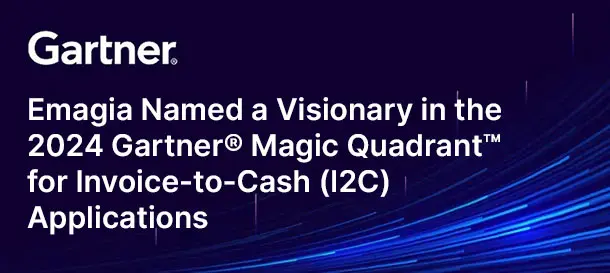Introduction: The Rise of Intelligent AR Collections Automation
Intelligent AR collections automation is reshaping the finance landscape, enabling organizations to manage collections and disputes with unprecedented speed and accuracy. By combining AI-powered dispute detection, automated workflows collections, and predictive delinquency modeling, finance teams can reduce manual effort, improve cash flow, and enhance customer relationships.
In 2026, companies are increasingly leveraging virtual collection assistants, conversational AI in collections, and autonomous collection systems to automate repetitive tasks and prioritize high-risk accounts. While some hype exists around intelligent automation, the real-world benefits in dispute resolution, compliance monitoring collections, and personalized customer dunning are transformative.
Why Intelligent Automation is a Game-Changer in AR Collections
Organizations face growing pressure to accelerate collections and resolve disputes efficiently. Traditional manual processes are slow, error-prone, and resource-intensive. Intelligent automation collections combines machine learning collections, AI dispute management, and natural language processing dispute management to streamline workflows, minimize errors, and enable strategic decision-making.
Finance leaders gain the ability to monitor real-time dispute case tracking, forecast potential payment defaults, and reduce Days Sales Outstanding (DSO) through AI-driven collections prioritization. These advancements free teams to focus on higher-value tasks, ensuring better compliance and customer experience.
Key Benefits of Intelligent AR Collections Automation
- Faster Collections: Automated workflows collections speed up invoice follow-ups, reducing the time required to collect outstanding payments.
- Improved Dispute Resolution: AI dispute management and automated dispute resolution streamline handling disputes, ensuring faster, more accurate outcomes.
- Predictive Insights: Predictive delinquency modeling identifies high-risk accounts, allowing proactive interventions to mitigate defaults.
- Enhanced Customer Experience: Virtual collection assistants and personalized customer dunning ensure communication is timely and tailored.
- Compliance and Risk Management: Ethical AI collections compliance and real-time monitoring reduce regulatory risks while maintaining audit trails.
- Operational Efficiency: Autonomous collection systems reduce manual workload, lower operational costs, and optimize resource allocation.
AI-Powered Dispute Management
Dispute management is one of the most complex areas in accounts receivable. Intelligent automation leverages AI-powered dispute detection, natural language processing dispute management, and automated workflows collections to categorize, prioritize, and resolve disputes efficiently.
By analyzing historical dispute patterns, payment behavior, and communication logs, AI identifies recurring issues and recommends resolution strategies. This reduces the cycle time for disputes, lowers the risk of write-offs, and ensures customer satisfaction remains high.
Automated Dispute Resolution
Automated dispute resolution allows finance teams to process exceptions without manual intervention. Intelligent AR collections automation applies predefined rules, AI models, and predictive insights to handle standard disputes quickly, escalating only complex cases to human agents. This approach minimizes delays, improves accuracy, and reduces operational costs, while ensuring compliance monitoring collections are consistently applied across all disputes.
Predictive Delinquency Modeling
Predictive delinquency modeling leverages machine learning collections to anticipate which accounts are likely to become overdue. By analyzing historical payment behavior, invoice history, and credit risk data, organizations can take proactive measures, such as personalized customer dunning, to prevent late payments. This forward-looking approach enables better cash flow optimization, reduces DSO, and improves overall financial health.
Virtual Collection Assistants and Conversational AI
Virtual collection assistants powered by conversational AI in collections provide automated, personalized communication with customers. These AI agents can handle routine follow-ups, answer queries, and resolve minor disputes, allowing human agents to focus on high-value accounts and complex cases. Conversational AI improves response times, ensures consistency in messaging, and supports compliance monitoring collections by maintaining detailed logs of interactions.
Autonomous Collection Systems
Autonomous collection systems integrate intelligent automation collections with predictive analytics in O2C and AI-driven collections prioritization. They manage end-to-end accounts receivable workflows, from invoice issuance to cash application and dispute resolution, with minimal human intervention. These systems optimize resource allocation, reduce operational bottlenecks, and allow CFOs and finance leaders to make intelligent decision making finance with real-time insights into cash flow, overdue accounts, and dispute resolution progress.
Compliance and Ethical AI in Collections
Intelligent AR collections automation must adhere to regulatory standards. Ethical AI collections compliance ensures that AI models and automation workflows comply with legal requirements and internal governance policies. Compliance monitoring collections integrates seamlessly into AI-driven workflows, providing real-time alerts for any non-compliant activity. This mitigates risk, protects the organization from penalties, and ensures customer trust remains intact.
Data Quality and Governance for Collections AI
High-quality data is critical for the success of intelligent automation collections. Accurate, complete, and consistent data enables predictive delinquency modeling, automated dispute resolution, and AI-driven collections prioritization to function effectively. Organizations must implement strong data governance policies, standardize data formats, and integrate systems to maximize AI accuracy. Data quality for collections AI ensures better cash flow forecasting, faster dispute resolution, and fewer errors in accounts receivable.
Integration with ERP and Finance Systems
API-Enabled ERP Integration
API-enabled ERP integration allows intelligent AR collections automation to work seamlessly with existing finance platforms. This ensures real-time visibility of accounts receivable, automated cash application, and synchronized dispute management across multiple systems.
Automated Workflows Collections Integration
By integrating AI-driven workflows with ERP and finance tools, organizations can automate routine tasks, such as sending reminders, escalating high-risk disputes, and updating customer records. This creates a unified ecosystem that supports operational efficiency and better decision-making.
Advanced Analytics and Machine Learning in Collections
Machine learning collections and AI-powered analytics provide actionable insights to finance teams. These tools analyze historical payment data, dispute trends, and customer behavior to optimize collections strategies, reduce risk, and improve cash flow management. Real-time dispute case tracking combined with AI-driven collections prioritization allows organizations to focus resources on high-risk accounts while maintaining operational efficiency and compliance.
Real-World Case Studies of Intelligent AR Collections Automation
Case Study 1: Global Manufacturing Company
A multinational manufacturing company implemented intelligent automation collections and virtual collection assistants to handle high volumes of customer disputes. Automated workflows collections and AI dispute management reduced dispute resolution time by 60%, improved cash flow predictability, and enhanced customer satisfaction.
Case Study 2: Large Retail Enterprise
A retail enterprise adopted AI-powered dispute detection and predictive delinquency modeling to prioritize overdue accounts. Personalized customer dunning and autonomous collection systems accelerated collections by 45%, minimized manual errors, and improved compliance monitoring collections.
Case Study 3: Logistics and Transportation Company
A logistics company leveraged automated dispute resolution and natural language processing dispute management to handle short payments and discrepancies. The integration with ERP systems and machine learning collections reduced operational costs, improved cash application accuracy, and strengthened customer relationships.
Best Practices for Implementing Intelligent Automation in Collections
- Start with High-Impact Use Cases: Focus on dispute resolution, predictive delinquency modeling, and personalized customer dunning for measurable ROI.
- Ensure Data Quality and Governance: Maintain accurate, consistent, and complete data for AI-driven collections processes.
- Implement Change Management: Training, stakeholder engagement, and continuous learning support smooth adoption.
- Continuous Monitoring and Optimization: Regularly refine AI models, optimize workflows, and improve predictive accuracy.
How Emagia Helps Finance Teams Transform Collections & Disputes
Emagia empowers finance teams with end-to-end intelligent AR collections automation solutions, bridging the gap between hype and real-world results. By combining AI dispute management, predictive delinquency modeling, automated workflows collections, and virtual collection assistants, Emagia delivers measurable improvements in cash flow and operational efficiency.
- Automated Dispute Resolution: Resolve disputes faster, reduce errors, and maintain compliance.
- Predictive Delinquency Modeling: Identify high-risk accounts and prioritize collections efforts.
- Virtual Collection Assistants: Automate customer communication with personalized, timely follow-ups.
- Autonomous Collection Systems: End-to-end AR workflow automation with minimal human intervention.
- Compliance Monitoring: Ensure ethical AI collections compliance and audit readiness.
Frequently Asked Questions (FAQs)
What is intelligent AR collections automation?
It is the use of AI, machine learning, and automation to manage accounts receivable collections and disputes, reducing manual effort and improving cash flow efficiency.
How does automation improve dispute resolution?
AI-powered dispute detection and automated workflows quickly identify, categorize, and resolve disputes, minimizing delays and errors while improving customer experience.
Can virtual collection assistants replace human agents?
Virtual collection assistants automate routine communications, freeing agents to focus on complex cases without replacing human judgment entirely.
What are the key benefits of predictive delinquency modeling?
It anticipates overdue payments, prioritizes high-risk accounts, reduces DSO, and optimizes resource allocation in collections teams.
How does Emagia support intelligent AR collections automation?
Emagia provides end-to-end solutions including AI dispute management, predictive analytics, virtual collection assistants, and autonomous collection systems to streamline collections and disputes effectively.
Actionable Takeaways for CFOs and Finance Leaders
- Focus on high-value use cases like dispute automation, predictive delinquency modeling, and autonomous collections systems.
- Ensure high-quality data for accurate AI predictions and efficient workflows.
- Deploy intelligent AR collections automation in phases for smooth adoption.
- Integrate AI solutions with ERP and finance systems for real-time visibility.
- Monitor KPIs continuously and refine AI models to maintain efficiency and ROI.
- Invest in change management and team training to embrace AI-driven collections confidently.
Conclusion: Unlocking the Full Potential of Intelligent AR Collections Automation
Intelligent AR collections automation is no longer a futuristic concept—it is a practical solution delivering measurable results. By leveraging AI, machine learning, and automation, finance teams can resolve disputes faster, prioritize collections effectively, reduce manual workload, and enhance cash flow.
Organizations that adopt intelligent AR collections automation benefit from higher operational efficiency, improved compliance, predictive insights, and enhanced customer satisfaction. Platforms like Emagia provide the tools to bridge the gap between manual AR processes and fully autonomous collections systems.
For CFOs and finance leaders, the key is to focus on actionable, high-impact use cases, integrate intelligent automation with existing systems, maintain high-quality data, and continuously monitor performance. By doing so, organizations can unlock the true potential of AI-driven collections and dispute management, positioning themselves for financial resilience and growth in 2026 and beyond.



